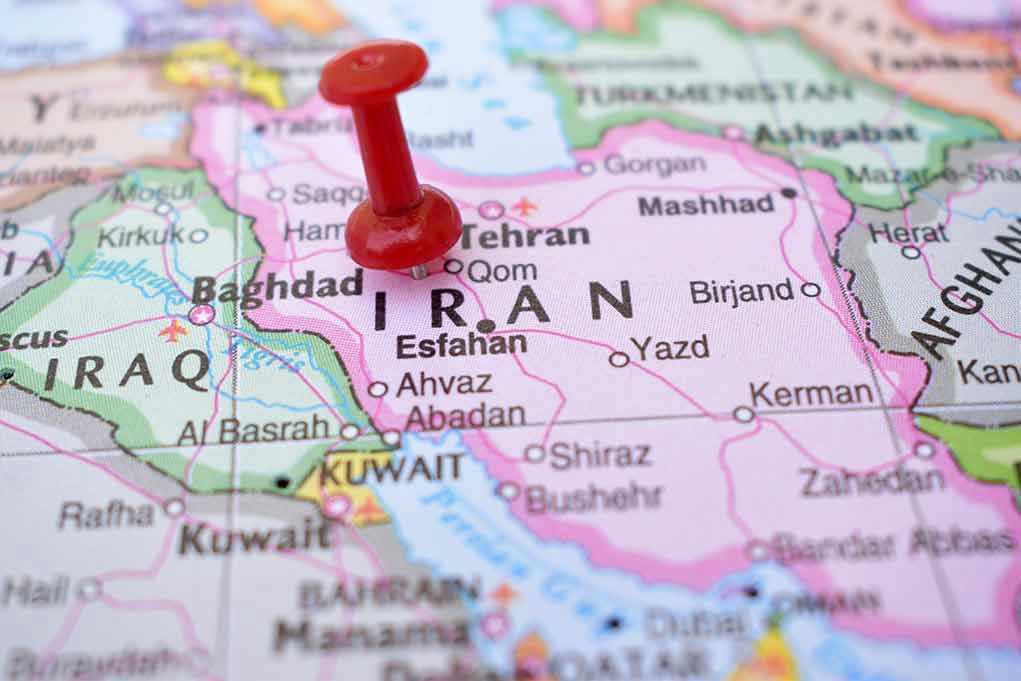
Iran has drawn a line in the sand, vowing consequences if the United Nations dares reimpose sanctions over its nuclear program—a move sure to set off a fresh round of global tension, bureaucratic chaos, and predictable hand-wringing from all the usual suspects.
At a Glance
- Iran threatens to retaliate if new UN sanctions target its nuclear ambitions.
- European powers and the US debate how to respond as diplomatic efforts stall.
- The “snapback” sanctions mechanism looms, raising fears of nuclear escalation.
- Sanctions could isolate Iran economically and destabilize global energy markets.
Iran Draws a Red Line Over Nuclear Sanctions
The Iranian regime is not mincing words: any attempt to revive United Nations sanctions will be met with a response, though Tehran refuses to say just what kind of “response” it plans. The world’s diplomats are wringing their hands, as European powers float the possibility of renewed penalties in the wake of Iran’s rapidly advancing nuclear program. If you’re wondering what happens when you corner a regime that has a history of thumbing its nose at international norms, you might not have to wait long for an answer.
Iran’s Foreign Ministry spokesman issued a warning in July 2025, making it clear that Tehran won’t sit idly by if the UN Security Council dusts off its old playbook and brings back sanctions. The specifics remain shrouded in the usual diplomatic fog, with Iranian officials hinting that their answer could involve ramping up nuclear activity or cutting off cooperation with international inspectors. If that sounds familiar, it’s because we’ve seen this brinkmanship before—except this time, the stakes may be even higher, with the “snapback” sanctions mechanism hanging over the negotiations like a guillotine.
The “Snapback” Sanctions Threat and Its Dangers
Here’s the beauty—and by beauty, I mean bureaucratic absurdity—of the UN’s “snapback” mechanism. Built into the 2015 nuclear deal, it allows any one of the main parties to the agreement to reimpose all previous sanctions if Iran is found in serious violation. No vetoes, no debate, just a snap of the fingers and, presto, Iran is back on the blacklist. The last time the US tried to trigger this in 2020, the rest of the Security Council basically shrugged and moved on, but this time the threat feels more real as Iran’s nuclear program speeds past every red line set by the original deal.
European diplomats are reportedly coordinating with the US and other allies to decide whether to pull the trigger on sanctions, even as Iran warns that such a move would bring “consequences.” Translation: expect less transparency, less access for international inspectors, and potentially more enrichment of uranium—just what every reasonable person wants in an already unstable region. The entire process highlights the impotence of international agreements when rogue states decide the rules don’t apply to them.
Economic and Political Fallout: Who Pays the Price?
Let’s be clear who stands to suffer most if the UN sanctions return. Iran’s own citizens are likely to bear the brunt, with economic hardship, rising unemployment, and more isolation from world markets. Oil exports could be throttled, and the region’s energy supply will once again be held hostage to the whims of a theocratic regime more interested in survival than compromise. Meanwhile, global energy markets could see price shocks, while Western companies and banks scramble to avoid running afoul of new restrictions. The only winners? The hardliners in Tehran, who thrive on confrontation and chaos.
And if you’re hoping for a diplomatic breakthrough, don’t hold your breath. The breakdown of multilateral engagement leaves the door wide open for Iran’s most radical elements to strengthen their grip, making any future negotiations even less likely to succeed. That’s the real legacy of appeasement and “strategic patience”—a world where the bad actors get bolder and the rest of us are left cleaning up the mess.
Expert Warnings and the Limits of Sanctions
Experts are already sounding the alarm, noting that more sanctions will likely backfire by pushing Iran further away from the negotiating table and into the arms of its hardline factions. The history of sanctions on Iran is a lesson in unintended consequences: economic pain that rarely changes behavior, fractured alliances among the world’s supposed leaders, and a nuclear program that marches forward regardless. Even the so-called “snapback” mechanism has become a subject of legal and diplomatic wrangling, with no consensus on its legitimacy after the 2020 Security Council standoff.
As the West debates how much pain to inflict and Iran plots its next move, the global community is left with the same old choice: talk tough, act tough, and face the fallout—or try to negotiate with a regime that sees compromise as weakness. Either way, it’s clear that the days of easy answers and empty threats are over. The world will soon find out whether the UN can actually enforce its own mandates, or if international law is just another casualty of 21st-century power politics.
Sources:
A Brief History of Sanctions on Iran – Atlantic Council
International Sanctions Against Iran – Wikipedia
Timeline: US Sanctions on Iran in the Last 45 Years – TBS News
Timeline: Nuclear Diplomacy with Iran, 1967-2023 – Arms Control Association
Timeline: US Sanctions – USIP Iran Primer

